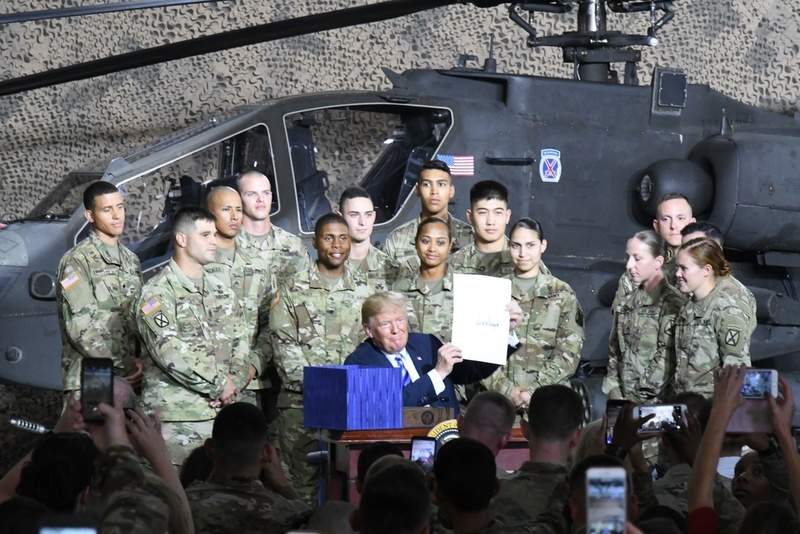
Since taking office, US President Donald Trump has repeatedly butted heads with China over several topics from trade to the Pacific, and during his tenure, the US military has shifted its focus from Europe to the Pacific.
In the opening chapter of the think-tank’s dossier ‘Asia-Pacific Regional Security Assessments’ author Bonnie Glaser says that “the causes of the deterioration in US−China relations are structural and deeply rooted”.
Glaser adds that with “with strategic competition now dominating the relationship” between China and US, smaller powers in the region are having to work together more closely to navigate the escalating great power competition between the two powers.
The Asia-Pacific Regional Security Assessment sets out an assessment of defence and security challenges in the APAC region and assesses questions about regional security issues.
Key points for APAC security
In the report, Glaser argues that Taiwan remains the “most dangerous” flashpoint between the US and China. Taiwan has been a sticking point for years, but as China attempts to assert more authority in the region, freedom of navigation and sovereignty of Taiwan have become particularly concerning.
In response to China’s increasing pressure on Taiwan, the Trump Administration has boosted ties with Taiwan and supplied it with military equipment to boost its defensive capabilities.
How well do you really know your competitors?
Access the most comprehensive Company Profiles on the market, powered by GlobalData. Save hours of research. Gain competitive edge.

Thank you!
Your download email will arrive shortly
Not ready to buy yet? Download a free sample
We are confident about the unique quality of our Company Profiles. However, we want you to make the most beneficial decision for your business, so we offer a free sample that you can download by submitting the below form
By GlobalDataDespite the increasing militarisation of the Straits, the report argues that while a military crisis cannot be ruled out, it is not inevitable.
IISS also found that while China is likely to resist any attempts to get it to sign up to an Intermediate-Range Nuclear Forces (INF)-like treaty, if it were to, its ballistic missile arsenal could shrink by up to 95%.
In another aspect of the dossier, IISS found that the ‘dead-lock’ on the Korean Peninsula is unlikely to be broken in the short term. It found that optimism around dialogue on the peninsula had dissipated since 2019. In this time, IISS noted that China has strengthened its ties with the North Korean regime.
Elsewhere, the dossier notes that increasing ties between Russia and China will present a ‘formidable long-term’ challenge for Europe. IISS found that increasingly strong Sino-
Russian relations will make it more challenging for European countries play a stronger security role in Asia.
Although Europe has typically not focused on China, NATO has pivoted its attention to the rise of China and noted the ramifications of the country’s expansion and the effects this could have on Europe.
European powers pivoting attention towards the rise of China is also evident in the UK’s plans to use the HMS Queen Elizabeth’s first operational voyage to navigate the South China Sea in 2021. In the past, the UK Government has been keen to use the carrier to exert freedom of navigation over the regime.




